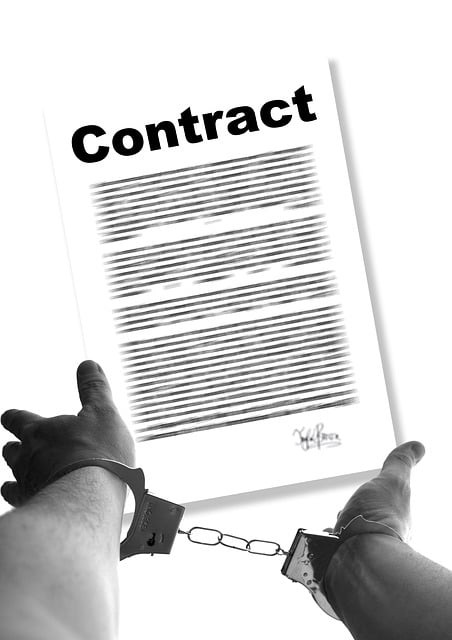Comprehensive Liability Insurance (CLI) is a critical tool for businesses, protecting against a wide range of risks from product accidents to false advertising claims. It offers financial security by covering legal fees and settlement costs in the event of a lawsuit. CLI is especially valuable for professional services like medicine, law, and consulting, safeguarding peace of mind and service quality. When selecting a policy, understand exclusions (e.g., intentional acts, hazardous materials) and set appropriate liability limits based on industry-specific risks. Choose insurers with industry expertise and efficient claims processes for reliability. Real-world examples highlight the potential financial devastations of liability claims, emphasizing CLI's importance as a risk management shield. Customizable add-ons like cyber liability protection and reputational damage coverage further bolster businesses against modern risks in today's digital era.
“Uncover the vital role of comprehensive liability insurance in safeguarding your business against unforeseen events. This article guides you through the intricate world of general and professional liability coverage, offering insights on everyday risk management and expert protection. From understanding core policies to navigating exclusions and choosing providers, we demystify key aspects. Explore real-world case studies, discover optional enhancements, and gain strategic advice for determining adequate limits. Equip yourself with knowledge to secure robust comprehensive liability insurance tailored to your business needs.”
Understanding General Liability Insurance: Coverage for Everyday Risks

General Liability Insurance is a crucial component of any business’s risk management strategy, offering protection against various everyday risks that can lead to lawsuits and financial loss. This type of insurance provides a safety net for businesses by covering costs associated with claims made by third parties, such as customers, clients, or members of the public. It includes compensation for bodily injury, property damage, personal and advertising injury, among others, arising from business operations. Essentially, it’s designed to shield businesses from the financial consequences of common incidents that could become legal issues.
Comprehensive Liability Insurance goes beyond typical day-to-day risks by offering broader protection. It covers a wide range of scenarios, including accidents involving products or services, premises liability (injuries on business property), and even false advertising claims. This comprehensive approach ensures businesses are protected in various aspects of their operations, providing peace of mind and financial security against potential lawsuits and claims.
Defining Professional Liability: Protecting Your Expertise and Services

Professional liability, often referred to as errors and omissions (E&O) insurance, is a crucial component of any business’s risk management strategy, especially for professionals offering specialized services. It provides protection against financial loss due to negligence or errors in your professional work. This type of coverage is designed to safeguard your expertise and the quality of services you provide to clients.
When you purchase comprehensive liability insurance, it ensures that your business is protected if a client sues due to dissatisfaction with your work or claims of missed deadlines. It covers legal fees, settlement costs, and any damages awarded, offering peace of mind knowing your business is shielded from potential financial setbacks. This is especially important for professionals in fields like medicine, law, accounting, and consulting, where even minor mistakes can have significant consequences.
Key Components of a Comprehensive Liability Policy

A comprehensive liability policy is an essential shield for businesses, offering protection against potential risks and claims. At its core, this insurance coverage consists of several critical components designed to address various liabilities. One of the primary elements is general liability coverage, which protects against common risks such as property damage or personal injury occurring on your premises or during business operations. This includes legal fees and damages in case of a successful claim.
Additionally, professional liability insurance, also known as errors and omissions coverage, is vital for businesses offering professional services. It safeguards against claims of negligence or malpractice by clients, covering the costs of defense and any resulting settlements or judgments. Comprehensive liability insurance thus provides a robust framework to manage risks, ensuring business continuity and financial protection in an unpredictable legal landscape.
Common Exclusions to Watch Out For

When considering comprehensive liability insurance, it’s crucial to be aware of common exclusions that could significantly limit your protection. These exclusions vary across policies but often include activities like intentional acts (where damage is intended), certain types of business operations (like illegal activities or those involving hazardous materials), and specific events (such as war or natural disasters). Understanding these gaps is essential for effectively managing risks.
For instance, if your business involves handling hazardous waste, an insurance policy might exclude any liability arising from that operation. Similarly, if you’re a contractor, exclusion clauses could cover damages caused by the failure to maintain a safe work environment or the actions of subcontractors. Knowing these potential gaps allows businesses and individuals to make informed decisions when selecting their coverage, ensuring they have the right protection for their unique circumstances.
Determining Adequate Limits for Your Business

When crafting a risk management strategy, establishing appropriate liability limits is paramount for any business owner. The right coverage amounts ensure that your Comprehensive Liability Insurance can adequately protect against potential claims and losses. These limits should be tailored to your specific industry, business size, and potential risks associated with your operations.
A careful assessment of past and foreseeable liabilities is key. Consider the nature of your work, the value of services or products you offer, and any unique hazards present in your workplace. By understanding these factors, you can set liability limits that provide sufficient financial protection while ensuring cost-effectiveness for your business.
How to Choose the Right Insurance Provider

When choosing an insurance provider for general and professional liability coverage, it’s crucial to consider several factors. Look for a company that offers a comprehensive suite of services tailored to your specific industry needs. Research their claims process, ensuring it is efficient and customer-friendly. You want a provider who can offer quick resolution and support throughout the entire process.
Additionally, check their financial stability and market reputation. A solid insurance provider should have a strong financial backing, allowing them to honor their policy commitments. Reviews from past clients can also provide valuable insights into the company’s reliability and customer service. Opting for a well-established and reputable insurer gives you peace of mind, knowing your business is in capable hands.
Case Studies: Real-World Examples of Liability Claims

In the realm of General and Professional Liability Coverage, understanding real-world examples of liability claims is paramount for businesses to make informed decisions regarding their risk management strategies. Comprehensive Liability Insurance serves as a crucial shield against potential financial devastations that can arise from various incidents, from product defects leading to customer injuries to professional negligence in services rendered.
Consider a case study involving a manufacturing company that fails to adequately test its product, resulting in a defective batch reaching the market. This leads to several consumer injuries and subsequent lawsuits, burdening the company with significant legal costs and damages. Conversely, imagine a consulting firm providing faulty advice on financial investments, causing clients to suffer substantial financial losses. Both scenarios highlight the tangible impacts of liability claims, emphasizing the importance of Comprehensive Liability Insurance in safeguarding businesses against such risks.
Enhancing Protection: Optional Add-ons and Amendments

Many comprehensive liability insurance policies offer optional add-ons and amendments that can significantly enhance protection for businesses. These extras are designed to cater to specific industry needs, providing customized coverage that goes beyond standard liability limits. For instance, an amendment might include extended warranties or guarantees, offering clients additional assurance about the quality of products or services provided.
Other valuable add-ons could cover reputational damage, cyber liability, or legal fees associated with defending against lawsuits. These optional protections are particularly relevant in today’s digital age, where businesses face increased scrutiny and potential online risks. By incorporating these amendments, businesses can create a robust risk management strategy, ensuring they’re prepared for a wide range of unforeseen events and legal challenges.
